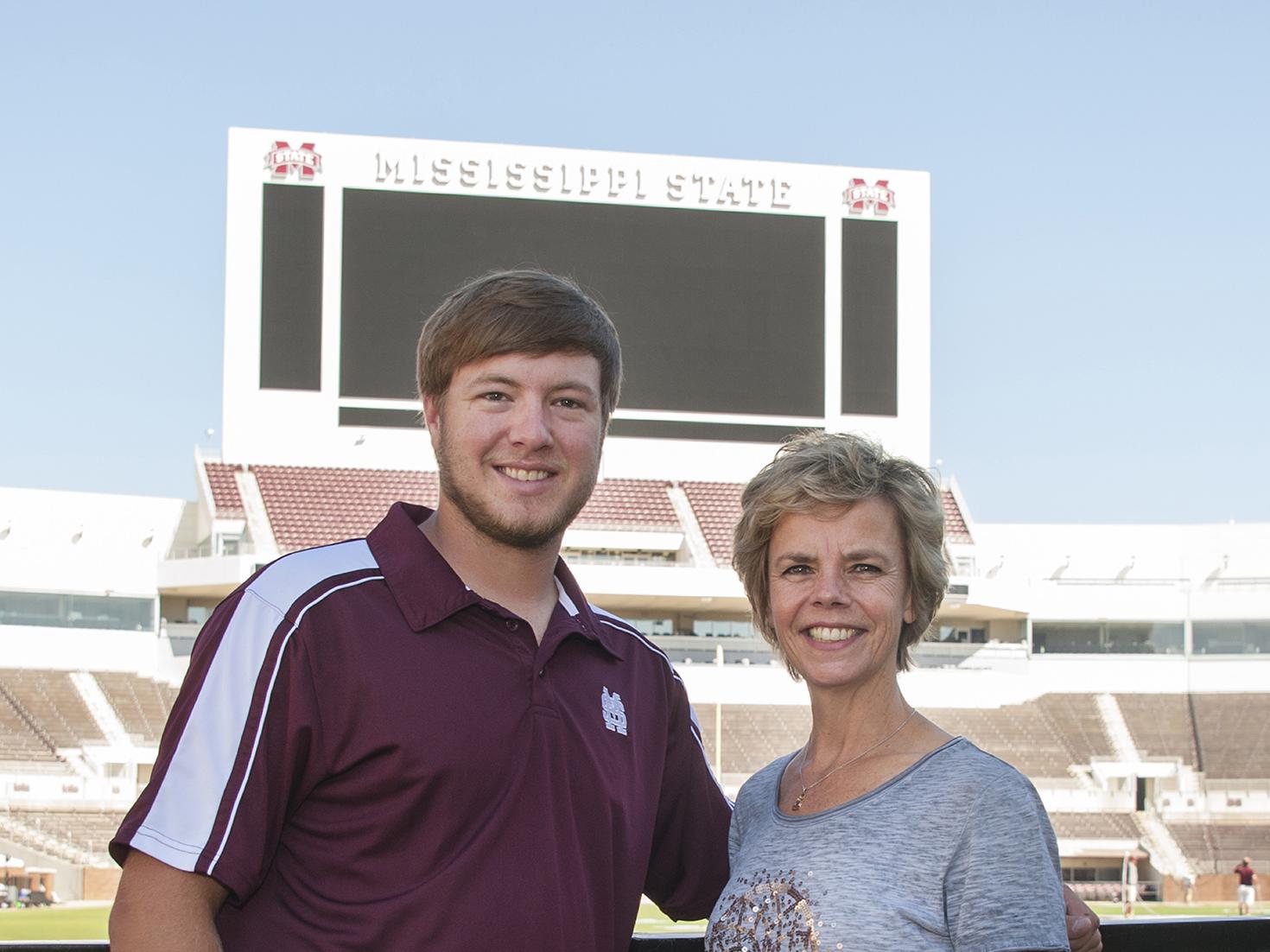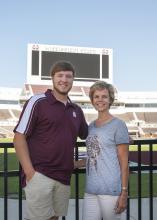Information Possibly Outdated
The information presented on this page was originally released on October 11, 2016. It may not be outdated, but please search our site for more current information. If you plan to quote or reference this information in a publication, please check with the Extension specialist or author before proceeding.
Dutch family puts down Delta roots
HOLLANDALE, Miss. -- Marjan de Regt and her husband, Jan, planned to spend three years farming in the Mississippi Delta before returning to their native Netherlands.
That was 29 years ago, and the family still calls Hollandale home.
The de Regts farmed 2,600 acres of soybeans, 500 acres of rice and 200 acres of corn in 2016. This year was only the third time they tried corn.
“We do better with soybeans and rice,” Marjan said. “This year was kind of a trial with corn. We like to find out how high we can push corn yields and see if we can make it compete with the other crops.”
Marjan is from western Netherlands, near Rotterdam. Jan is from Brakel, which is more centrally located. They married on Jan. 30, 1987, and moved to Washington County, Mississippi, on March 6 of the same year.
“We moved right before planting season,” Marjan said. “We had never grown soybeans and never seen rice. The plan was we would come here for three years and then go back. When you’re young, it’s a great, exciting experience to go to America and do that. We said we could do anything for three years.”
Both Jan and Marjan grew up on farms. He was employed in the Dutch government and she was a medical technician in a research laboratory, but they wanted to get back to the land.
“When farming is in your blood, you’ve got to do it,” Marjan said.
When they left for America, both had assurances from their Dutch employers that their jobs would be waiting for them when they returned.
“We actually had nothing to lose, so we went for it and then didn’t return,” Marjan said.
Their Forrest City Farms is one continuous block of 3,300 acres in Washington County, an investment by some of Jan’s family in England.
“It’s hard to find land in the Netherlands anymore,” Marjan explained. “We went for a little vacation in England looking for farms, and while we were there, we visited a family member in England who I had never met.
“A few days later, he called my husband and said, ‘Are you sure you want to farm?’ He said, ‘Yes, that’s what we want to do.’ The relative said, ‘I’ve been thinking about it, and I know the perfect place, and it’s in America,” Marjan said.
Although they knew “school English” before coming to the U.S., the de Regts had to learn Southern English, and they faced other challenges as well. They entered a different culture knowing no one in the area, and they found everything very spread out.
“If you go grocery shopping, it’s 30 minutes away,” Marjan said. “When we bought our first car, we went to Memphis. In the Netherlands, it would be comparable to going to another country. Everything is bigger here, and even the farm machines are larger.”
The size also brings some of what they enjoy the most.
“One of the best things is the freedom you have as a farmer,” Marjan said. “Because it’s so large here, there’s not as many restrictions as you have in a country that is smaller and more populated.”
Early into their continuing adventure as Dutch farmers in the Delta, Marjan drove tractors and served as an extra farmhand. Today, she remains active with the farm, running the business side of things.
While the farm is the family’s livelihood, they are committed conservationists as well.
Jason Krutz, Mississippi State University Extension Service irrigation specialist, said he has been at Forrest City Farms on several occasions working with them on irrigation efficiency.
“What sets the de Regt family apart from their peers is their passion for optimizing the potential for soybean production on their farm,” Krutz said.
In 2012, they used computerized hole selection for irrigation efficiency in one field. This tool selects the right size hole to deliver the correct amount of water in furrow-irrigated situations. Results were so significant that they switched the entire farm to computerized hole selection in 2013. In 2014, they began scheduling irrigation farm-wide using soil moisture sensing technology.
“The de Regts are among the leading proponents for irrigation water management strategies for the Mississippi Delta,” Krutz said.
The family’s involvement in agriculture extends beyond farming. Their son, Skyler, is a senior agribusiness major at MSU. Marjan is active as a director in Women for Agriculture, an MSU-supported organization that encourages and celebrates females in a largely male industry.
“I attended meetings and really enjoyed it, and last year they asked me if I would be a part of it,” Marjan said. “Most farm meetings are for men, but I think it’s good for women to have an organization like this.”
Jan is a past president of the Mississippi Soybean Promotion Board. Their daughter, Vivian, lives and works in Fort Lauderdale, Florida.



